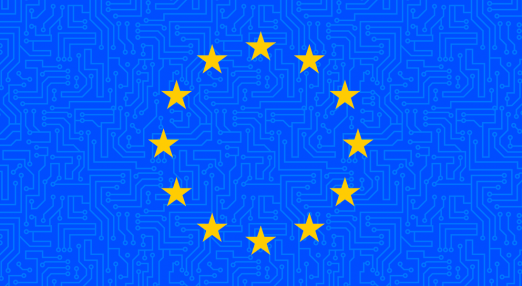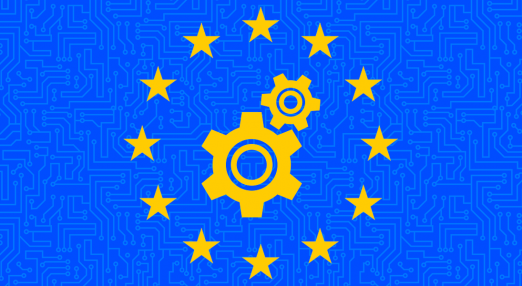Digital Services Act
Filter by...
-

Big Tech platforms are hurting us. 50 organisations urge the EU to #FixAlgorithms
The list of negative consequences of how dominant online platforms shape our experience online is neither short nor trivial. From exploiting users’ vulnerabilities, triggering psychological trauma, depriving people of job opportunities to pushing disturbing content to others, these are just some examples. While members of the European Parliament debate their position on the Digital Services Act (DSA), EDRi’s member Panoptykon Foundation (Poland), together with 49 civil society organisations from all over Europe, including EDRi, Amnesty International, Article 19, European Partnership for Democracy and Electronic Frontier Foundation, urge them to ensure protection from the harms caused by platforms’ algorithms.
Read more
-

Can the EU Digital Services Act contest the power of Big Tech’s algorithms?
A progressive report on the Digital Services Act (DSA) adopted by the Committee on Civil Liberties, Justice and Home Affairs (LIBE) in the European Parliament in July is the first major improvement of the draft law presented by the European Commission in December. MEPs expressed support for default protections from tracking and profiling for the purposes of advertising and recommending or ranking content. Now the ball is in the court of the leading committee on internal market and consumer protection (IMCO), which received 1313 pages of amendments to be voted in November. EDRi's member Panoptykon Foundation explores if the Parliament would succeed in adopting a position that will contest the power of dominant online platforms which shape the digital public sphere in line with their commercial interests, at the expense of individuals and societies.
Read more
-

The Data Governance Act – between undermining the GDPR and building a Data Commons
Compared to the DSA and the DMA, the DGA has received relatively little attention, both from the digital rights community and, seemingly, from industry stakeholders. So far, the discussion in the EP – where the Internal Market ( IMCO), legal affafirs (JURI) and civil liberties (LIBE) committees have issued opinions – has revealed relatively few clear faultlines.
Read more
-

Joint Civil Society Statement Urges IMCO Committee to Uphold Fundamental Rights in the DSA
On 1 July 2021, along with 6 leading civil society organisations EDRi signed a joint statement urging Members of the Internal Market and Consumer Protection Committee (IMCO) in the European Parliament to uphold fundamental rights and democratic principles in the final Digital Services Act (DSA) regulation.
Read more
-

DSA should promote open and fair digital environment, not undermine the rule of law
The Rapporteur of the European Parliament Committee leading one of the most important legal initiatives to regulate platforms has spoken. The Internal Market and Consumer Protection (IMCO) Committee's draft report on the Digital Services Act (DSA) turns online platforms into judge, jury and executioner when it comes to removing online content. This follows the same logic as the Copyright Guidelines that were presented last week. It also gives vast powers to the European Commission and national governments to suppress opposing voices.
Read more
-

At a glance: Does the EU Digital Services Act protect freedom of expression?
The Digital Services Act is in many ways an ambitious piece of legislation that seeks to make ‘Big Tech’ accountable to public authorities through new significant transparency and due diligence obligations. It also contains many provisions that could help protect users’ fundamental rights. Whether it will be successful at protecting freedom of expression from undue restrictions or reining in the power of Big Tech rather than cementing it, is, however, questionable. EDRi's member ARTICLE 19 share its first thoughts on why.
Read more
-

The Digital Markets Act must do more to protect end users’ rights
As the European Commission sets out plans for a Digital Markets Act, EDRi calls for the protection of users’ human rights to be at the centre of plans to regulate the role platform gatekeepers play in the future of Europe’s digital environment.
Read more
-

The EU’s attempt to regulate Big Tech: What it brings and what is missing
This week, the European Commission has proposed two long-awaited pieces of digital legislation, the Digital Services Act and the Digital Markets Act. Despite a number of good provisions, there are also major shortcomings which must be addressed to guarantee the protection of digital rights.
Read more
-

‘A for effort’: European Commission DSA/DMA proposal falls short of the systemic change needed to rein in Big Tech power
The Commission’s proposal is an important step but falls short of putting forward an ambitious plan to break free from the centralised platform economy that defines people’s online experiences today.
Read more
-

Big Tech’s dominance: only laws can limit its power
Big Tech companies like Facebook have grown so large that the U.S. antitrust authority F.T.C. is considering breaking them up. We need laws that limit the power tech firms wields over our lives.
Read more
-

EU alphabet soup of digital acts: DSA, DMA and DGA
Members of the European Commission appointed in 2019 agreed to put digital policies as one of the cornerstones of EU legislation between 2019-2023. These include the Digital Services Act (DSA), the Digital Markets Act (DMA) and the Data Governance Act (DGA). So, what are the differences between these acts?
Read more
-

How can “interoperability” strengthen our choices and privacy online?
Brussels is moving into high gear on internet regulation, as the text of the much-anticipated Digital Services Act (now with an additional Digital Markets Act) is due to be published by the European Commission on 2 December.
Read more
